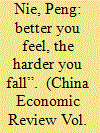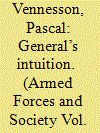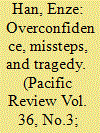| Srl | Item |
| 1 |
ID:
187820


|
|
|
|
|
| Summary/Abstract |
The health risks of the current COVID-19 pandemic, together with the drastic mitigation measures taken in many affected nations, pose an obvious threat to public mental health. To assess predictors of poor mental health in the context of the COVID-19 pandemic, this study first implements survey-based measures of health perception biases among Chinese adults during the pandemic. Then, it analyzes their relation to three mental health outcomes: life satisfaction, happiness, and depression (as measured by the CES−D). We show that the health overconfidence displayed by approximately 30% of the survey respondents is a clear risk factor for mental health problems; it is a statistically significant predictor of depression and low levels of happiness and life satisfaction. We also document that these effects are stronger in regions that experienced higher numbers of confirmed COVID-19 cases and deaths. Our results offer clear guidelines for the implementation of effective interventions to temper health overconfidence, particularly in uncontrollable situations like the COVID-19 pandemic.
|
|
|
|
|
|
|
|
|
|
|
|
|
|
|
|
| 2 |
ID:
160627


|
|
|
|
|
| Summary/Abstract |
Can we trust the operational intuitions of generals? The proponents of the overconfidence model, one of the most influential perspectives in the psychology of judgment, commonly offer a skeptical answer. Generals’ operational intuitions are likely to be hampered by overconfidence and negatively affect military effectiveness. However, the successful operational outcome of General Douglas MacArthur’s decision to land at Inchon (June–September 1950) seemingly contradicts the model. We seek to complement and refine the overconfidence model by examining the Inchon landing decision through the analytical lens of the recognition-primed decision model. This model typically envisions that under specific circumstances—notably an experienced decision maker, an adequate environment regularity, and an opportunity to learn—generals are able to make quick and satisfactory decisions. We show that such a configuration was present in the Inchon landing case and helps explain both the decision process and its successful outcome.
|
|
|
|
|
|
|
|
|
|
|
|
|
|
|
|
| 3 |
ID:
192541


|
|
|
|
|
| Summary/Abstract |
This paper makes a novel contribution by examining the puzzle of one Southeast Asian nation, Myanmar, and its dramatic shift of ‘fortune’ in its international status and the domestic consequences of that shift during the decade of 2010–2020. It highlights how the country’s changing international relations affected its domestic political decision-making process. It puts forth the argument that the amount of international attention the country received since 2011 as the target of competitive courtship between China, United States, and the West in general, and the consequent feeling of being valued as a geostrategic asset, created strong conditions for overconfidence on part of Myanmar’s government and military. This favorable international environment also coincided with perceived progress in democratization domestically. Similar to its past patterns of behavior toward ethnic minorities, the Myanmar military and the government overestimated their likelihood of success in dealing with the Rohingya minority while underestimating the likelihood of punishment by the international community.
|
|
|
|
|
|
|
|
|
|
|
|
|
|
|
|